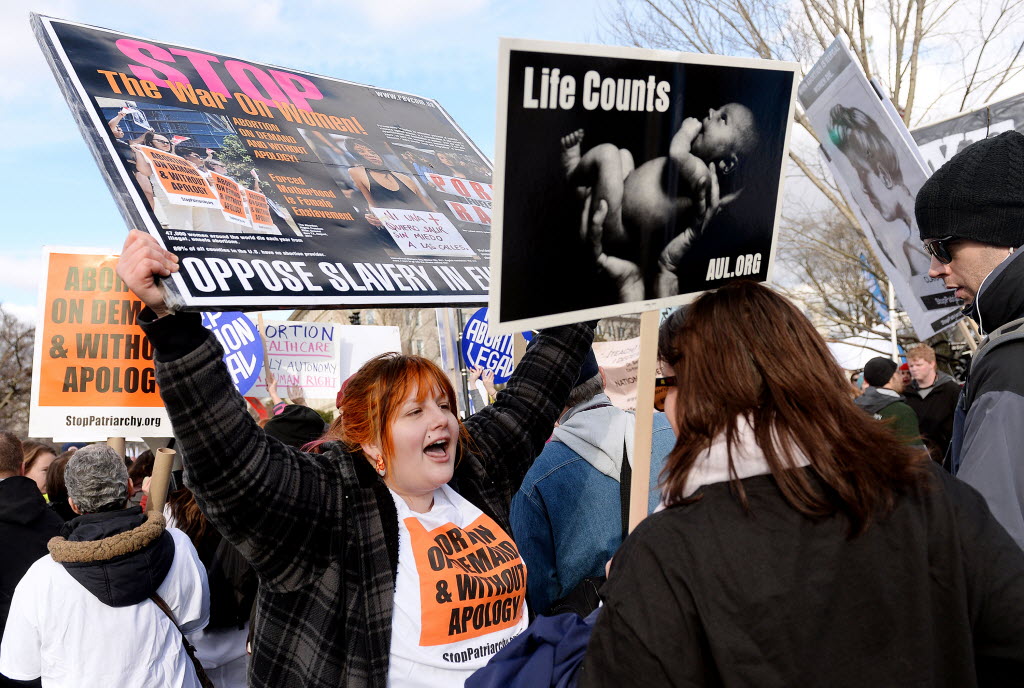
In November, you’ll be asked if you want to dramatically change California’s abortion laws to allow a baby to be aborted right up until the minute before that baby is born.
Right now, a woman can have an abortion in California up to the point where the baby can survive outside the womb or is “viable.” Viability has been the standard for decades.
Based on polling, it is likely most Californians are comfortable with that viability standard. But legislative Democrats are testing how far voters are willing to go to allow legal abortions up to a baby’s due date.
That’s what will be on the ballot this November in California with Proposition 1.
How did we get here?
Much has been said about the recent 6-3 decision by the Supreme Court of the United States in Dobbs vs. Jackson Women’s Health Organization that reversed previous court rulings and found that there was not a federal constitutional right to have an abortion. The court ultimately concluded: “Abortion presents a profound moral question. The Constitution does not prohibit the citizens of each State from regulating or prohibiting abortion.” With that decision, determining public policy around the issue of abortion has been returned to each of the 50 states.
State responses — like the people who live in them — are wide, varied and diverse. According to a Gallup Organization survey of the opinions of Americans on the issue taken in late May of 2022, 35% said abortion should be legal under all circumstances, 18% said legal under most circumstances, 32% said legal only in a few circumstances and 13% said all abortions should be illegal.
In other words, fully half of Americans chart a middle course on this issue. On the football field of politics, most Americans find themselves between the 35-yard lines.
California’s approach, though, puts us next to the progressive goal line. As a practical matter, the decision in Dobbs and the overturning of Roe v. Wade has no effect on abortion rights in California. Up until viability (generally regarded as 24 weeks into a 40-week pregnancy), women can obtain abortions for any reason. The state subsidizes the procedure and has passed laws encouraging “abortion tourism.”
But the modest restriction precluding abortion after viability (unless done for the health of the mother) would be eliminated if voters pass a constitutional amendment that has been placed before us by the Democrat-controlled state Legislature.
Proposition 1 on the California ballot would place these words into the state constitution: “The state shall not deny or interfere with an individual’s reproductive freedom in their most intimate decisions, which includes their fundamental right to choose to have an abortion and their fundamental right to choose or refuse contraceptives.”
With the passage of this amendment, abortion in California would become legal until the moment of birth. The explicit language in this amendment could not be clearer and provides no exceptions or restrictions on a right to an abortion. This is the most extreme position that could be taken on this issue.
Why is Proposition 1 even on the ballot? It represents a convergence of two interests. Pro-abortion extremists want to not only ensure abortion is legal in California until birth, while guaranteeing that at no time in the future can laws on abortion access be reduced. Progressives would also like to shift the debate away from issues like cost of living, high gas prices or rising crime ahead of the election.
Californians are passionate about the state of human rights around the world, rightly outraged at abuses in some countries that make our stomachs turn. With Proposition 1 we would become more radical than countries we abhor. What kind of a state would guarantee the right for a healthy, pregnant mother to get an abortion the very day her child is due? We can and should be better than that and reject abortion extremism.
Jon Fleischman is a small business owner and the publisher of the FlashReport website on California politics. He resides in Yorba Linda.
